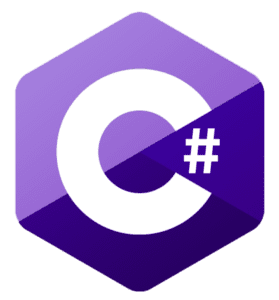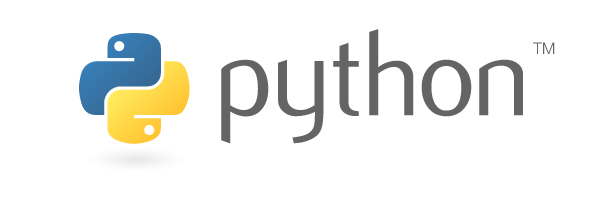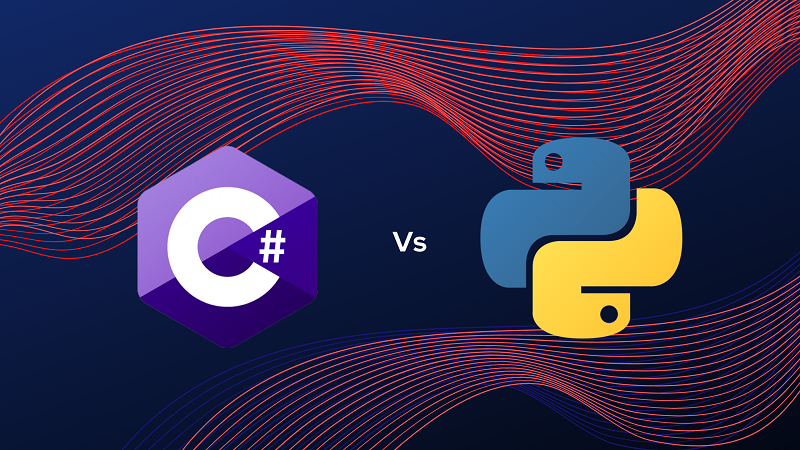It is always fascinating to compare two robust technologies, which are the chartbusters in the list of the most popular programming languages of recent times: that are nonother than C# & PYTHON.
When it comes to programming, the developers are often confused about choosing the ideal programming language that serves their purpose.
Hence, such comparative studies help guide the business owners and developers who often face the dilemma of selecting the right one from two or more available alternatives. So let’s begin with the basics. Before we go into the in-depth analysis between these two, let’s have a quick look into C# and Python’s necessary details.
It is essential to understand that C# and Python are object-oriented languages based on OOP concepts. They usually are considered easy to learn and code and generally offer fast development and good performance.
C # developed and managed by Microsoft is a statically compiled language that is totally object-oriented. It is a modern, popular, and straightforward language. On the other hand, Python is an open-source, high-level interactive, object-oriented, general-purpose scripting language. Python is intended to be extremely clear as it is based on open supply initiatives and community involvement and also shines in rapid development time.
In this article, we’re going to have a detailed comparison of Python vs C#, along with its differences and similarities, their pros and cons. The choice between the two is often difficult and challenging as C# is considered to be a direct Python competitor.
Since both technologies offer rapid development and better performance, it is observed that the .NET developers often switch to Python and vice versa. Both have gentle learning curves too.
Let’s take it one by one and discuss it further.

С# - An Overview
C# was developed by Microsoft as part of .NET and is a general-purpose programming language designed for the Common Language Infrastructure (CLI). C# (C-sharp) is a modern object-oriented and straightforward programming language, developed by Anders Hejlsberg as an alternative to C and C++.
Therefore, C# possesses structural similarities with these languages to a great extent. C# closely follows the traditional C & C++ constructs, yet it is relatively modern and it received a plethora of updated features and is easier to learn compared to its predecessors. It is rather designed for CLI (Common Language Infrastructure) that includes executable code and runtime settings.
Being an object-oriented programming language, C# also has a lot in common with Java. The basic structure of a C# program, a namespace declaration, class definition (variables and methods) etc., are similar to that of C++ and Java.
C# - The Pros
Object-oriented language:
C#, as mentioned earlier, is a pure object-oriented language that permits/helps create reusable codes and modular, maintainable applications, which itself is a boon for the developers.
Type-safe
Type safety in .NET restricts the developer from making mistakes at compile-time, as well as run time. It also prevents the objects of one type from sneaking into other objects’ memory, limiting errors during compilation.
Automatic garbage collection
This is a great feature of C#, and because of this, the system doesn’t get hanged as C# constantly and automatically removes and erases all the garbage.
Enhanced integrity and interoperability
C# has better integrity and interoperability with other .NET technologies. C# assures easy integration with components that are written in different languages as it runs on CLR.
The rich class libraries:
The presence of the rich class libraries and the support of the Microsoft support systems speed up the development process and eases the functions’ implementation process.
C# - Major Fields
It is used in a wide variety of tech fields globally. Some are listed below:
It is used for backend services, to develop web applications, to produce iOS and Android mobile applications, Windows client applications, used in Windows services, Windows libraries and components, Web services and Web API, used as an integral part of AI and Machine learning, IoT devices, used for the development of popular Computer/Video games, etc.
C# - Major Clients
Many popular tech giants around the world use C# programming for their functioning, including Microsoft Corporation, Stack Overflow, Accenture plc, Delivery Hero SE, Intuit, and many more.

PYTHON – An Overview
Python, an all-purpose taken, interactive, object-oriented, and high-level language, was developed by a Dutch programmer Guido Van Rossum throughout 1985- 1990.
The idea of Python language development is based on the innovative DRY (Don’t Repeat Yourself) principle and readability. Python ASCII text file is also out there beneath the antelope General Public License (GPL). Python is interpreted, dynamically typed, and is a high-level interactive and object-oriented scripting language.
It provides easy debugging and uses English keywords oftentimes wherever as different languages use punctuation. Python boosts the speedy development of application prototypes and has fewer syntactic constructions than other languages.
Python follows C & Java in most of its features since it is derived from many other languages. It is portable and easy to learn as it has the best features and programming capabilities of all the languages.
Python – The Pros
An Interpreted language
In Python, the code is executed directly — line by line as it is processed at runtime by the interpreter. You don’t have to compile your program before you run, and also, in case of any error appears, it immediately stops further executions.
Easy to learn, read, and code
The reason why Python is a nice language for beginner-level programmers is its English-like syntax. The process of learning, reading, and writing the code requires much less effort as it supports the event of a good variety of applications from straightforward text process to World Wide Web browsers to games in comparison with other languages.
Productive
The increased control capacity, powerful integration features, and unit testing framework in Python dictate applications’ productivity and speed.
Efficient libraries support
Python has a huge standard library involving OS interfaces, web services tools, Internet, string operations, and much more. Python also has a package index with more than 200 thousand packages, which could be imported with ease with the help of Python package manager.
Portability
The best thing about Python is that it is easy to code, read, maintain and port. With the inclusion of system-dependent features, the program can be run on a wide variety of platforms without changing the code.
Python – Major Fields
Python had already evolved as a key component in program development in various fields including,
Web development, Data science and visualization, various business applications, Web scraping applications, CAD applications, Embedded applications, developing mobile apps, advanced Game development, futuristic AI and Machine learning, and much more. Its acceptance is growing day by day due to the lack of complexity in application development.
Python – Major Clients
Python is evolving as the darling of many companies and programmers around the globe really fast. Google (Search Engine and components of Google spider), YouTube, Spotify, Yahoo (Maps), Mozilla and lot more are effectively using Python in their business ventures.
C# Vs Python – Head to Head
For any programming language, getting timely technical help and assistance is vital for the programmers/developers. If you can afford to pay a premium, then C#, which operates in the Microsoft solutions ecosystem, ensures that developers get adequate support from Microsoft experts whenever required. Whereas in Python, since it is open-source, developers can count only on the Python community. Even though it is beneficial and passionate, you can’t get the same expertise in emergencies.
Dynamic Vs Static Properties
C# is a statically typed language, whereas Python has dynamic type-casting. In C#, the compiler gives the wrong typescripts errors, but Python gives no need for variable declarations. Simply speaking, C# requires an additional compile step, which is not usually preferred by the developers and thus impacts productivity and time consumption needed for testing and debugging. Also, the compiler finds errors before they have an impact on the development. On the contrary, in Python, the process is much easier and faster as it runs immediately.
Performance
There is a great difference between C# and Python in terms of performance. Since it is an interpreted language, Python depends to a great degree on its interpreter for its speed. On the other hand, being a compiled language C# requires more time and effort to write the code. Yet it brings more efficiency in its performance. The CLI framework gives a better edge to C# over Python in speed and performance.
Ease of use
Python and C# enjoys neck and neck popularity among developers around the globe. C# is rooted in object-oriented programming. It naturally becomes a perfect choice if you have background knowledge or experience in Java or strives to develop applications for the .NET Framework. To be frank, you wouldn’t be able to write a program in C# without knowing what compilation, assemblies, namespaces, classes and methods are.
The biggest advantage for Python in this aspect is that the developers don’t require the knowledge of so many language constructions as it’s a dynamically typed language. What makes Python stand out is that here developers can learn more in the development process, whereas, in C# developers require a basic knowledge of language constructions as classes and functions. In simple terms, we conclude that a project in C# requires hiring highly proficient developers in C#. On the contrary Python developers can keep on learning new things and run quick tests as they progress.
Development Speed
As we know that Python is based on DRY (Don’t Repeat Yourself) and the readability principle, the focus is to produce quality code with minimum effort. Python runs with a much simpler syntax in comparison to C#. Python has many whitespaces and easy readability and doesn’t require the programmer to finish every line with a semicolon.
Application Areas
Both languages are widely used for everything from game development to the Internet of Things. But when it comes to machine learning, Python is an extremely popular choice for developers with many tutorials and videos and offers a vast majority of software choices. Whereas in #C the choice is more limited — ML.NET and older libraries like Accord.NET are few.
Final Word
To conclude, it is quite challenging to choose the best one out of Python Vs #C. It is really hard for any critic to have a judicious comparison as tools are different and often serve a different purpose. Both Python and C# offer great performance, have strong, active support communities, and various libraries. They are extremely popular in the programming world.
Ultimately, it depends on your priority and needs as a developer. If your preference is fast and neat coding, easy learning, big open-source libraries, and machine learning, the best choice is undoubtedly Python. C#, on the other hand, is the perfect option in terms of efficiency of performance, lack of inconsistencies in the formatting rules & syntax, and great Microsoft integration.

